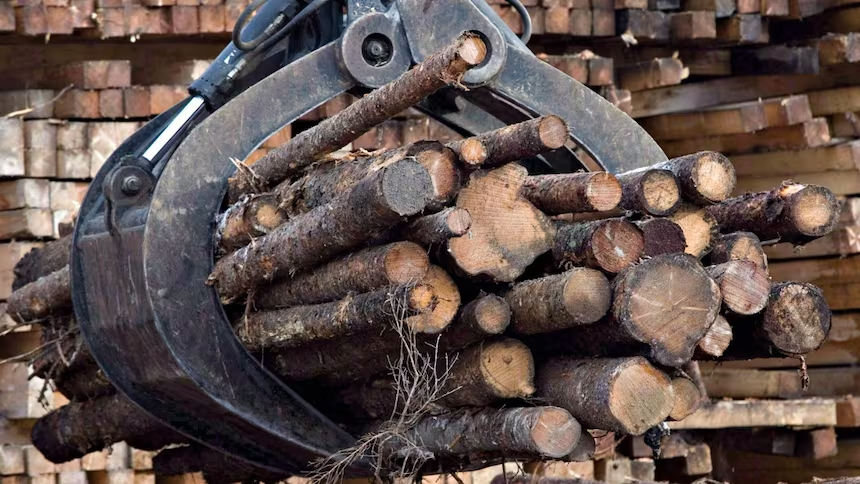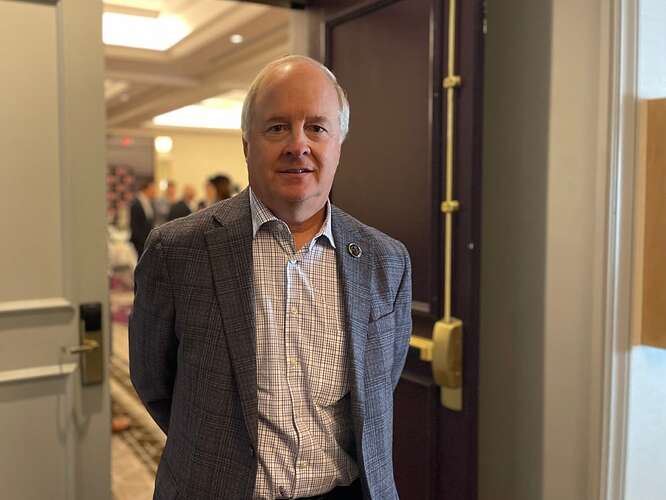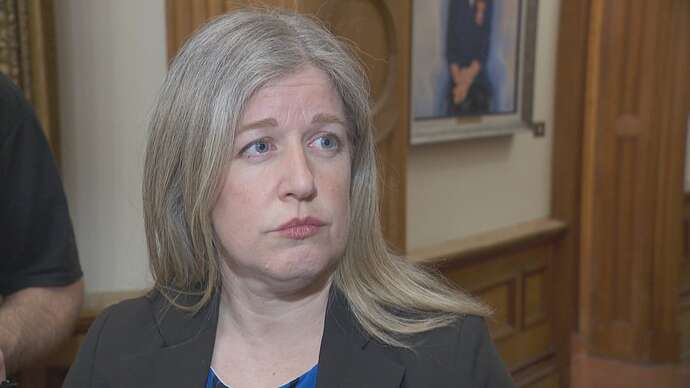Companies reliant on New Brunswick’s softwood lumber industry are bracing for hard times after U.S. President Donald Trump announced new tariffs on Sept. 30.
It means a further 10 per cent tariff on softwood lumber, in addition to the 35 per cent tariff already in place, as well as a new 25 per cent duty on some finished wood products including cabinets and upholstered furniture. These tariffs would come into effect on Oct. 14.
Duties would then increase to 30 per cent for upholstered furniture and 50 per cent for cabinets and vanities on Jan. 1.
In a letter to Prime Minister Mark Carney, New Brunswick Premier Susan Holt pleaded for the federal government to make softwood lumber tariffs a top priority.
“In some communities in New Brunswick, one in every 11 workers depends directly on forest products,” Holt wrote.
“The impact of mill curtailments or closures would be immediate and severe, resulting in job losses, reduced government revenues and fewer resources for essential services.”
‘Ongoing issue’
Ron Marcolin, the New Brunswick vice-president with Canadian Manufacturers and Exporters, said the latest tariffs and duties are a big deal in a long-running drama over softwood lumber.
Ron Marcolin, the New Brunswick vice-president with Canadian Manufacturers and Exporters, said the latest tariffs and duties are a big deal, though merely the latest episode in a long-running drama over softwood lumber. (Oliver Pearson/CBC)
“This is an ongoing issue. We have gone to numerous courts of arbitration. We’ve won every single time,” said Marcolin.
“The issue, however, is they’re our biggest market. So when you’re dealing with your biggest market, of course they have a lot of sway.”
One company caught in the crosshairs of Trump’s tariffs is Shediac’s Glenwood Kitchens.
Our goal is not to have layoffs. We’re a very lean business… If someone decides to retire or move away, we just won’t rehire.
— James McKenna, owner of Glenwood Kitchens
The company manufactures kitchen cabinets and bathroom vanities, sending about 20 per cent of its products south of the border, mostly to New England.
Owner James McKenna said he expects to remain busy until January, but is bracing for a slowdown in manufacturing after that.
“Our goal is not to have layoffs,” he said.
“We’re a very lean business. We’ll be able to weather the storm, you know, with our employees through attrition. If someone decides to retire or move away, we just won’t rehire.”
While McKenna isn’t expecting layoffs, Marcolin said other businesses may have to take that step.
“We have had… some temporary closures,” he said. “It’s really unsettling, obviously, for the families in New Brunswick, for obviously the workers, the companies.”
Expansion will be limited
McKenna said his business hopes to expand into other markets to make up for what is lost in U.S. sales.
He said they don’t sell products throughout New Brunswick at the moment, so areas like Sussex, Woodstock, and northern New Brunswick are possible new territories.
In a letter to Prime Minister Mark Carney, New Brunswick Premier Susan Holt pleaded for the federal government to make finding a resolution to softwood lumber tariffs a top priority. (Chad Ingraham/CBC)
The company is also looking to expand existing markets in the Caribbean, in Bermuda and on the French islands of Saint Pierre and Miquelon off Newfoundland’s south coast.
Still, nothing will completely replace the American market.
“People always say, ‘Oh well, you just export to, you know, Ireland or England,’” said McKenna.
“I’m like, ‘You know, we have 10 million people within an eight-hour drive of New Brunswick. Our best market to go after [is] the one that we are most connected to.’”
The thing is, too, they realize their product is inferior. Their softwood lumber is not as good as a Canadian stick of lumber.
— Ron Marcolin, Canadian Manufacturers and Exporters
While New Brunswick may largely rely on the American market, Marcolin said Americans also rely on New Brunswick’s products.
In part, that’s because American sources can’t produce enough lumber to satisfy the demand, “so they’re actually forced into importing,” said Marcolin.
“The thing is, too, they realize their product is inferior. Their softwood lumber is not as good as a Canadian stick of lumber.”


